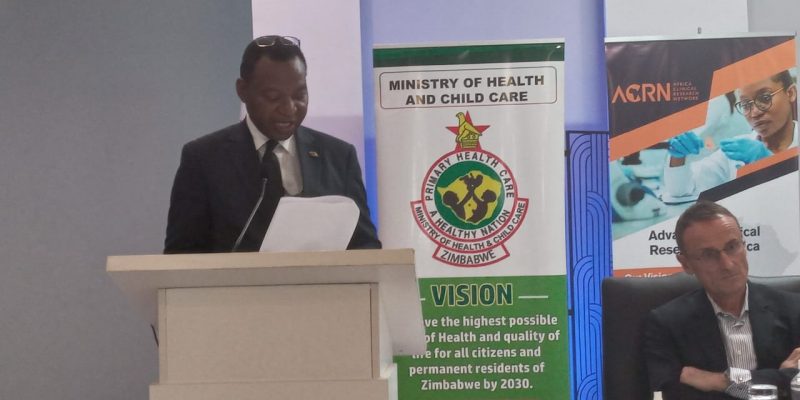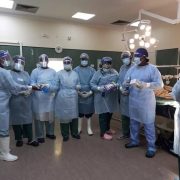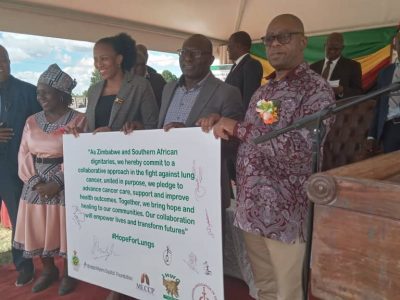Zimbabwe is advancing its efforts to become a leading hub for clinical research in Africa, with the government emphasizing stronger regulatory frameworks, improved efficiency, and increased transparency.
Speaking at the Africa Clinical Research Network (ACRN) this afternoon ,CD Curative Services Dr. Maxwell Hove who delivered a speech on behalf of Health and Child Care Minister, Hon. Dr. Douglas Mombeshora, outlined the country’s commitment to medical innovation and global research collaborations.
The conference brought together global pharmaceutical companies, the Gates Foundation, and ACRN representatives to discuss the future of clinical trials and regulatory advancements. The government pledged to enhance research capacity, attract international partnerships, and streamline approval processes for clinical studies.
By Ruvarashe Gora
“Our government is committed to transforming Zimbabwe into a center of excellence for clinical research,” Dr. Hove stated. “This includes fostering a sustainable life sciences industry that can drive economic growth while ensuring better healthcare for all Zimbabweans.”
One of the key focuses of the conference was strengthening regulatory systems, particularly through the Medicines Control Authority of Zimbabwe (MCAZ) and the Research Council of Zimbabwe (RCZ). These institutions oversee the country’s clinical trial approvals, ensuring that research is conducted ethically and efficiently.
David Mukanga, Deputy Director for Africa Regulatory Systems at the Gates Foundation, emphasized the importance of a transparent and predictable regulatory environment to attract more research investments.
“Zimbabwe is working with MCAZ, RCZ, and other partners in the country to continue strengthening the system and making it more efficient. More transparency and predictability are key, and this is what people supporting clinical research want to see. When they invest in a study, they need assurance that within a given timeframe, it will be completed,” Mukanga said. “We work together to strengthen these ecosystems so that groups like the ACRN can truly attract research to the continent, transform lives, and contribute to innovation from Africa.”
With declining global health aid, Zimbabwe is prioritizing self-sufficiency in medical research. The government is encouraging investments in biotechnology and pharmaceuticals to create high-skilled jobs and drive economic growth. Initiatives like the electronic submission system for clinical trials and the establishment of the National Institute of Health are expected to enhance efficiency and boost investor confidence.
As Zimbabwe positions itself as a key player in global health research, the ACRN meeting highlighted the need for transparent regulations, strong partnerships, and continued investment in research infrastructure. Stakeholders agreed that streamlining clinical trial processes and ensuring regulatory predictability will be essential in attracting more medical research and fostering innovation across Africa.







Comments